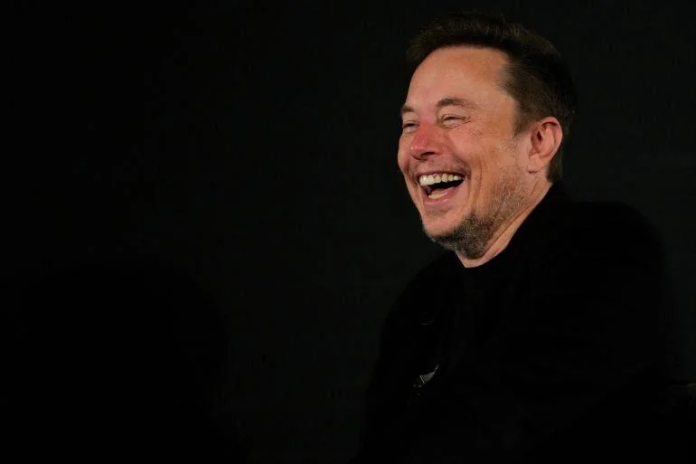
Elon Musk is no stranger to the headlines. Whether it’s his ambitious space endeavors, his eclectic presence on social media, or his relentless drive to push Tesla forward, Musk consistently captures public attention. The latest news to make waves is his staggering $44.9 billion pay deal, approved by Tesla shareholders. This deal, spanning over a decade, has sparked extensive debate and curiosity. What does it entail? How does it compare to other CEO compensations? And what does it mean for the future of Tesla? Let’s dive into the details.
The Magnitude of the Pay Deal
- Understanding the $44.9bn Figure
The $44.9 billion figure attached to Elon Musk’s pay deal isn’t a simple salary. It’s an intricate mix of stock options and performance-based incentives. Unlike traditional salaries, Musk’s compensation is heavily tied to Tesla’s performance, with milestones and benchmarks that, if met, can result in Musk receiving a significant payout.
The deal is structured around a series of market capitalization and operational goals. For each milestone achieved, Musk is granted stock options that could be worth billions if Tesla’s stock performs well. To put it in perspective, if Musk hits all targets, the stock options could be worth as much as $44.9 billion, assuming Tesla continues its rapid growth.
- Milestones and Performance Goals
The pay deal lays out 12 tranches of stock options, each tied to Tesla hitting specific market capitalization levels, ranging from $100 billion to $650 billion. Additionally, there are revenue and profit milestones, ensuring that the company isn’t just growing in size but also in financial health.
For instance, one of the tranches might require Tesla to reach a market cap of $150 billion and achieve an annual revenue of $35 billion. Only upon meeting both criteria does Musk earn the stock options for that tranche. This structure aims to align Musk’s interests with those of the shareholders, incentivizing sustainable growth.
Why Musk’s Compensation Is So High
- Vision and Leadership
Elon Musk’s compensation package is a reflection of his unique role and vision. His leadership has transformed Tesla from a niche electric car manufacturer into one of the world’s most valuable companies. His vision extends beyond electric vehicles to encompass energy storage, solar power, and autonomous driving technologies.
Musk’s strategies, from vertical integration to direct sales, have disrupted traditional automotive models and established Tesla as a market leader. His ability to innovate and push boundaries justifies, to many, the high stakes of his compensation.
Achievements Under Musk
Under Musk’s guidance, Tesla has achieved significant milestones:
- Market Dominance: Tesla has become a dominant player in the electric vehicle market, with substantial market share.
- Financial Growth: The company has consistently reported increasing revenues and, recently, profits.
- Innovation: Innovations like the Gigafactory, Autopilot, and energy products like the Powerwall highlight Tesla’s diversified portfolio.
These achievements underscore why Musk’s compensation is tied to future performance, rewarding him only if he continues to deliver groundbreaking results.
The Shareholder Vote
- Details of the Vote
The shareholder vote on Musk’s pay deal involved extensive deliberation. Tesla’s board of directors proposed the compensation plan, and it was subjected to a vote by shareholders. The process included multiple meetings and discussions, reflecting the magnitude of the decision.
The outcome saw a significant majority in favor, indicating strong confidence in Musk’s leadership. However, it wasn’t without controversy, as some investors expressed concerns about the scale of the package.
- Reactions from Investors
Investor reactions were mixed but leaned towards support. Proponents argue that Musk’s vision and leadership are crucial for Tesla’s continued success and that the ambitious targets of the compensation plan justify the potential rewards. Critics, however, raise concerns about the disparity in CEO pay and potential risks if the goals are not met.
In the long term, shareholders expect that aligning Musk’s compensation with performance will drive Tesla towards greater heights, benefiting the company and its investors alike.
Comparative Analysis
- Musk vs. Other Tech CEOs
Elon Musk’s pay deal stands out starkly when compared to other tech CEOs. While other CEOs also have substantial compensation packages, they often include a higher proportion of base salary and bonuses. Musk’s compensation is almost entirely performance-based, with no guaranteed salary, emphasizing the high-risk, high-reward nature of the agreement.
For instance, compared to CEOs like Tim Cook of Apple or Sundar Pichai of Alphabet, who receive significant portions of their pay in salaries and bonuses, Musk’s package is entirely tied to long-term performance, making it unique.
- Historical CEO Compensations
Historically, few CEO compensation packages have reached the scale of Musk’s. Notable past deals, such as those for Apple’s Steve Jobs or Oracle’s Larry Ellison, also included substantial stock options, but Musk’s deal is unparalleled in its scale and structure. The evolution of CEO pay reflects a growing trend towards performance-based rewards, particularly in high-growth sectors like technology.
Public and Media Reaction
- Media Coverage
The media’s reaction to Musk’s pay deal has been a mix of awe and scrutiny. Headlines range from praising Musk’s ambitious goals to questioning the ethics of such a large compensation package. Major outlets have highlighted the potential for Musk to reshape industries while also questioning the implications of such high executive pay.
- Public Opinion
Public sentiment is similarly divided. Many admire Musk’s entrepreneurial spirit and see the compensation as a just reward for his achievements and future potential. Others criticize the disparity between executive pay and average worker salaries, viewing the package as a symbol of growing inequality. Social media has been abuzz with debates, reflecting the polarized views on the subject.
The Future of Tesla and Musk
- Anticipated Challenges
Looking forward, Tesla faces several challenges. The electric vehicle market is becoming increasingly competitive, with new entrants and traditional automakers vying for market share. Additionally, regulatory hurdles, supply chain issues, and the need to scale production while maintaining quality present significant obstacles.
Musk’s leadership will be crucial in navigating these challenges and continuing Tesla’s growth trajectory. His ability to innovate and adapt will be tested as the company expands and faces new pressures.
- Opportunities Ahead
Despite the challenges, Tesla has numerous opportunities. The continued expansion into global markets, advancements in battery technology, and the development of autonomous driving systems represent significant growth areas. Additionally, Tesla’s foray into energy products offers a diversification that could prove vital in the future.
Under Musk’s vision, Tesla aims to remain at the forefront of innovation, setting trends and driving the future of both the automotive and energy industries.
Conclusion
Elon Musk’s $44.9 billion pay deal is a testament to his impact on Tesla and his ambitious vision for the future. While it has sparked debate, the structure of the compensation plan aligns Musk’s rewards with the company’s success, pushing him to achieve extraordinary results. As Tesla navigates a rapidly evolving market, Musk’s leadership and innovative spirit will be crucial in steering the company towards continued success.
FAQs
- What are the main components of Musk’s $44.9bn pay deal?
Musk’s pay deal consists of 12 tranches of stock options, each tied to achieving specific market capitalization, revenue, and profit milestones. The payout depends entirely on Tesla meeting these ambitious targets.
- How does Musk’s pay compare to other CEOs in the tech industry?
Musk’s compensation is distinct in that it is almost entirely performance-based with no guaranteed salary, unlike many other tech CEOs who receive substantial base salaries and bonuses.
- What were the reactions from Tesla shareholders regarding this deal?
The shareholder vote largely supported the deal, reflecting confidence in Musk’s leadership. However, there were some concerns about the scale of the package and the potential risks involved.
- What future challenges does Tesla face under Musk’s leadership?
Tesla faces challenges including increased competition, regulatory pressures, and the need to scale production while maintaining quality. Musk’s leadership will be critical in overcoming these obstacles.
- How has public opinion shaped the narrative around Musk’s compensation?
Public opinion is divided, with some viewing the compensation as a deserved reward for Musk’s achievements and vision, while others criticize the disparity between executive pay and average worker salaries.





























Hello there, simply become aware of your blog thru Google, and found that it is really informative. I’m going to watch out for brussels. I will appreciate if you happen to continue this in future. Many other people might be benefited out of your writing. Cheers!
кухни на заказ — Удобные и стильные кухни, разработанные под ваши размеры и стиль.
I am glad to be one of many visitants on this great internet site (:, thanks for posting.